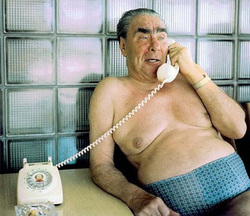
(By the way, this doesn't mean that Piss Christ should have received public funding - anymore than the makers of Hot Tub Time Machine should've received a grant from the Courthold Institute.)
This is going to read like a leap into the dark, but I think the same ambivalence applies to the horror movie genre that so many conservatives deplore. I spent this Easter eating gummy bears and watching video nasties with an old friend, the theistic philosopher Nicholas Waghorn. I hadn’t noticed before just how conservative American grindhouse is. European directors like Dario Argento and Lionel Delplanque often use horror to push a progressive politics (animal rights in the former, gay rights in the latter). Some American directors have done the same, and George Romero’s zombie movies are a classic example of social criticism with slice’n’dice thrills. But the b-movie product of the late 1970s to early 1990s views like a recruitment video for the Moral Majority. The victims are the byproduct of Sixties morals: the horny, the greedy, the vacuous, the stoned. The hero is usually someone who has said no to sex ten times in the last ten minutes. Sometimes Christian hypocrites get it in the neck (literally), but it’s usually their hypocrisy that has offended the filmmakers rather than their theology.
Nicholas and I particularly enjoyed Brain Damage, a fine 1988 black comedy by Frank Henenlotter. The star of the movie is a charismatic talking parasite called Elmer. Elmer escapes a crusty old couple who are keeping him trapped in a bath and worms his way into the life of a young slacker called Brian. Here’s the deal: Elmer will feed Brian a hallucinogenic blue fluid if Brian will feed Elmer fresh brains. The trip the fluid induces is really cool, so Brian says yes.
Brain Damage does a better job of warning us off drug use than President George H.W. Bush, who was pedaling a similar message with the use of cartoons at the same time. But there’s an unsubtle anti-sex agenda in Brain Damage too. After his adventures with Elmer, Brian awakes on his bed covered in blood and sweat; his foggy memories are like a wet dream. He seduces his victims and, in one instance, Elmer pounces from his trousers as a sex-pot is about to give him oral relief in a boiler-room. Elmer is a saucy parasite that bears more than a passing resemblance to the worms in David Cronenberg’s Shivers (1975), which burrow into people’s bodies and turn them into randy drones.
Like so many others, Brain Damage was denounced by conservative critics for its sexual and violent pornography. It makes for difficult viewing, but its central message oddly affirms natural law. It can be placed into a cannon of conservative grindhouse offerings that deserve a rethink – Frightmare (idiot psychiatrists secure the early release of a cannibal from prison), Last House on the Left (middle-class couple dispense nasty but entirely earned justice on shaggy-haired hippies), I Spit on Your Grave (rape victim takes law into her own hands, NRA style), Driller Killer (guy takes revenge on noisy neighbors with a power drill, we cheer him on), or The Fly (scientist has a lot of sex with strangers, turns into a fly). Two subgenres are particularly worthy of mention. Possession thrillers (The Exorcist, Poltergeist) affirm the existence of God and the threat of Satanic invasion. Slashers invariably punish randy youngsters for getting-it-on well past their bedtime.
Many contemporary horror movies express vaguely conservative sentiments too. The Hostel series was dismissed as torture porn upon release, but they are actually a revenge fantasy of East Europeans against the sexual appetites of Western tourists. I don’t claim that anything I have listed here is high art or a conscious expression of Judeo-Christian values (they are far more likely to be a panicked response to the AIDS and drug pandemics that hit America when they were made). But the conservative would do well to re-watch them with an open mind. And a sick bag.


 RSS Feed
RSS Feed